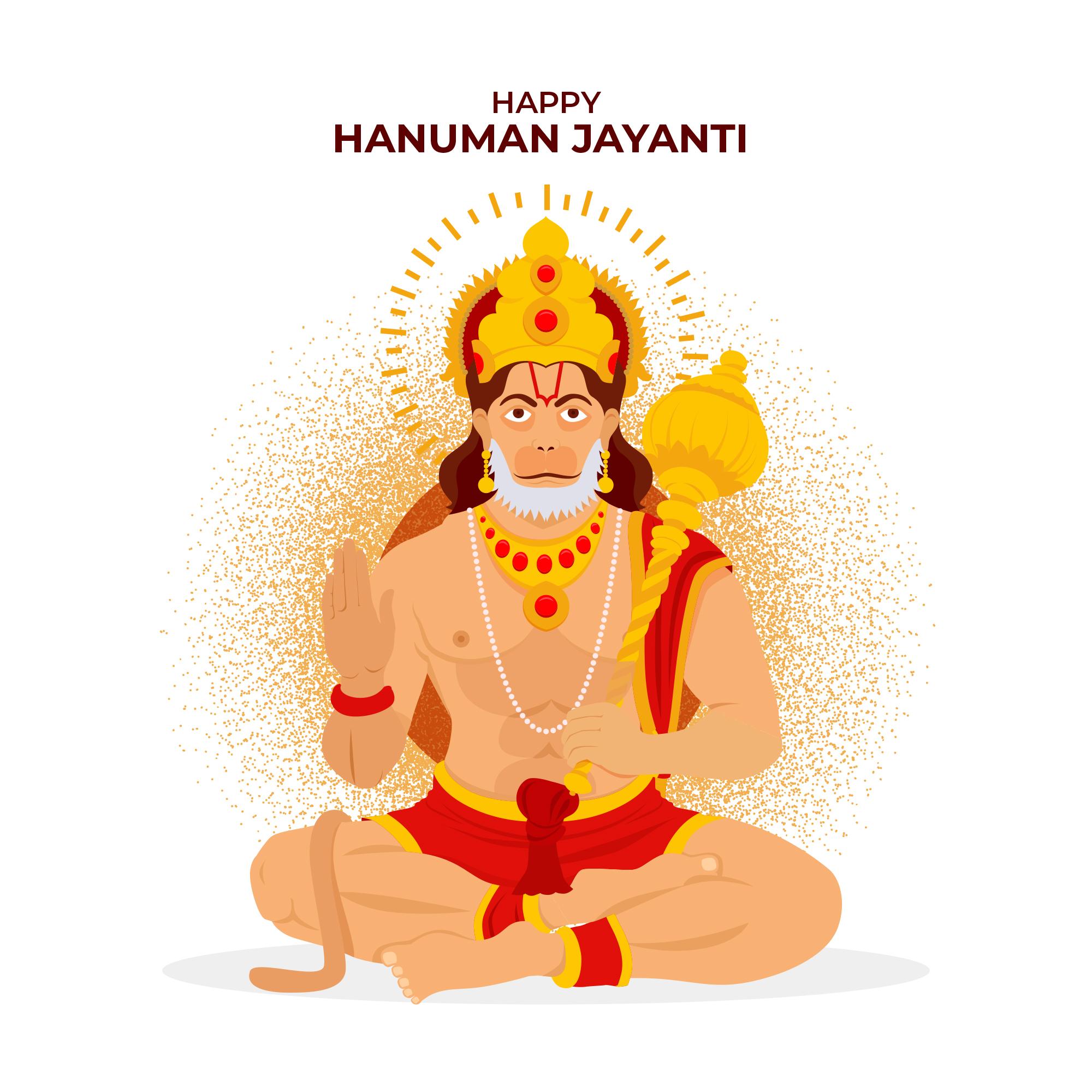Hanuman Jayanti, an auspicious Hindu festival celebrating the birth of Lord Hanuman, is observed with great reverence and devotion across India. One of the intriguing customs associated with this festival is the application of sindoor (vermilion) by devotees. This article delves into the significance of Sindoor during Hanuman Jayanti and explores the rich traditions and beliefs surrounding this sacred occasion.
Significance of Sindoor on Hanuman Jayanti
Sindoor holds profound symbolic meaning in Hindu culture. It is believed to represent auspiciousness, devotion, and the power of divine protection. On Hanuman Jayanti, devotees apply sindoor to their foreheads as a mark of reverence towards Lord Hanuman, who is revered for his unwavering devotion to Lord Rama.
Traditional Rituals and Customs
The festival of Hanuman Jayanti is marked by various rituals and customs that highlight devotion and spirituality. Devotees visit Hanuman temples, offer prayers, and participate in special ceremonies. Applying sindoor during this time is considered a sacred act symbolizing purity and commitment.
Offerings and Prayers
Devotees prepare offerings such as flowers, fruits, and sweets to present to Lord Hanuman. Special prayers and hymns dedicated to Hanuman are chanted, creating a spiritually charged atmosphere.
Temple Visits and Celebrations
Hanuman temples are adorned with flowers and lights, attracting devotees who seek blessings and inspiration. Community celebrations include devotional singing, recitals of the Hanuman Chalisa, and insightful discourses on Hanuman’s life and virtues.
Spiritual and Cultural Importance
Hanuman Jayanti holds immense spiritual and cultural significance for devotees. It is a time of deep introspection and renewal of faith in Lord Hanuman’s grace and protection.
Devotion and Faith
Devotees express their unwavering faith and devotion to Hanuman by observing fasts, performing charitable acts, and engaging in spiritual practices.
Symbolism of Sindoor
The application of sindoor symbolizes the commitment to righteousness and the strength derived from Hanuman’s unwavering dedication to Lord Rama.
Benefits and Beliefs Associated with Sindoor
The use of sindoor is not merely a ritualistic act but is believed to carry numerous benefits and blessings.
Symbol of Protection
Sindoor is considered a protective talisman, guarding against negative energies and bringing auspiciousness into one’s life.
Marital Bliss and Longevity
In many traditions, sindoor is also associated with marital bliss and longevity. Married women apply sindoor as a symbol of their commitment and devotion to their spouses.
Preparations for Hanuman Jayanti
The festivities leading up to Hanuman Jayanti are characterized by vibrant preparations and festive spirit.
Sindoor Application Ritual
Devotees cleanse themselves spiritually before applying sindoor, emphasizing purity of mind and body.
Decorations and Festive Atmosphere
Homes and temples are adorned with flowers, lights, and traditional decorations to welcome the divine presence of Lord Hanuman.
Spiritual Practices and Mantras
During Hanuman Jayanti, devotees engage in various spiritual practices to invoke blessings and seek divine protection.
Recitation of Hanuman Chalisa
The Hanuman Chalisa, a revered hymn dedicated to Lord Hanuman, is recited with devotion, believed to bring strength and prosperity.
Meditation and Puja
Meditative practices and special pujas are conducted to connect with Hanuman’s divine energy and seek his blessings for courage and wisdom.
Stories and Legends
The tales of Hanuman’s valor and devotion are woven deeply into the fabric of Hindu mythology.
Hanuman’s Devotion to Lord Rama
Hanuman’s unwavering devotion to Lord Rama, as depicted in the Ramayana, serves as a timeless inspiration for devotees.
Mythological Tales of Hanuman
Folklore and epic narratives illustrate Hanuman’s extraordinary abilities and selfless service to Lord Rama.
Regional Variations in Celebrations
Hanuman Jayanti is celebrated with diverse customs and practices across different regions of India.
Different Customs Across India
Each state and community may have unique ways of honoring Hanuman, reflecting local traditions and cultural influences.
Regional Traditions and Festivities
From grand processions to elaborate temple ceremonies, Hanuman Jayanti showcases the cultural diversity and spiritual unity of India.
Modern Observance and Practices
The observance of Hanuman Jayanti has evolved over time to encompass broader social and cultural dimensions.
Community Gatherings and Events
Communities organize charitable events, health camps, and cultural programs during Hanuman Jayanti, fostering unity and social welfare.
Social Impact and Charity Work
Hanuman Jayanti inspires acts of charity and service, promoting values of compassion and solidarity.
Conclusion
Hanuman Jayanti, with its vibrant festivities and profound rituals, epitomizes devotion and spiritual awakening. The application of sindoor during this auspicious occasion symbolizes deep-rooted faith and reverence towards Lord Hanuman, imparting blessings of protection and auspiciousness to devotees.




